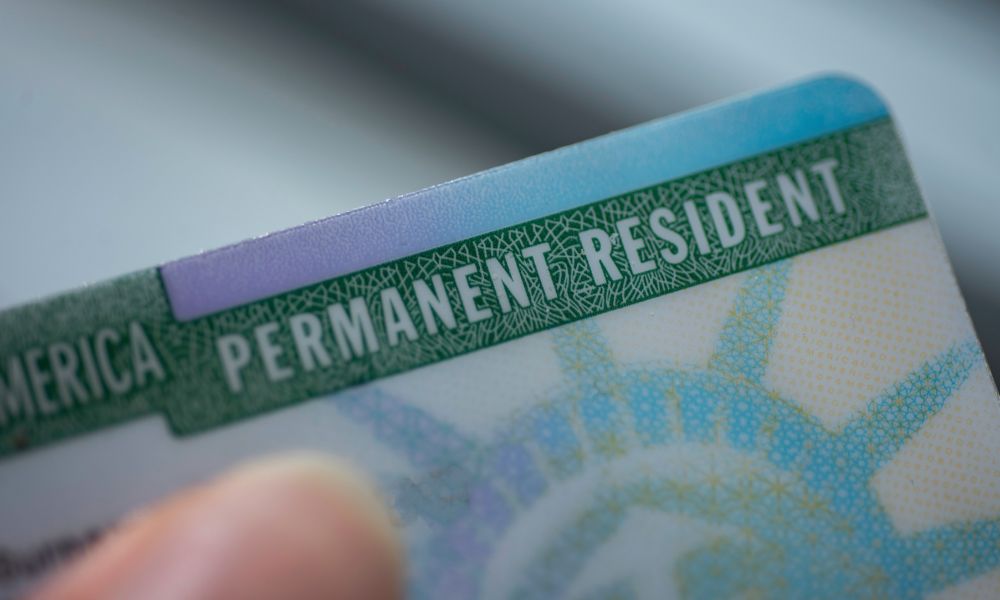Navigating the complexities of obtaining a marriage green card and adjusting status can be daunting for couples. The process involves numerous forms, interviews, and often confusing legal jargon that can overwhelm even the most prepared applicants. For those seeking to build a life together in the United States, understanding these procedures is essential.
Legal support plays a crucial role in guiding couples through this intricate journey. Attorneys specializing in immigration law can provide invaluable assistance, ensuring that all requirements are met and potential pitfalls are avoided. They help demystify the process, offering clarity and confidence to couples eager to secure their future.
With the right legal guidance, couples can navigate the marriage green card process more smoothly, minimizing stress and maximizing the chances of a successful outcome. Whether it’s understanding eligibility, preparing documents, or attending interviews, professional support can make all the difference in achieving the dream of living together in the U.S.
Understanding Marriage Green Cards
A marriage green card allows a U.S. citizen or permanent resident’s spouse to live and work in the United States. Navigating this process involves meeting specific eligibility criteria and gathering the necessary documentation.
Eligibility Criteria
To qualify for a marriage green card, several conditions must be met. First, the marriage must be legally valid, which means it recognizes federal and state laws. Second, the marriage shouldn’t solely have immigration benefits as its primary purpose. The sponsoring spouse must prove U.S. citizenship or permanent residency status. Lastly, the beneficiary must meet admissibility standards, meaning no criminal or immigration violations that bar entry.
Required Documentation
Applicants must submit a range of documents. Essential items include a proof of marriage like a marriage certificate, evidence of the sponsoring spouse’s U.S. citizenship or permanent residency, and documentation proving the marriage is genuine, such as joint financial records or affidavits from friends and family. A completed Form I-130, Petition for Alien Relative, and associated fees are also mandatory. Properly organized documentation aids smooth processing and minimizes delays.
By understanding these components, couples can better prepare for the marriage green card process, ensuring a more straightforward path forward with or without the assistance of adjustment of status lawyers from agencies like SimVisa.
The Adjustment of Status Process
The adjustment of status allows eligible individuals to become permanent residents while remaining in the U.S. It’s an alternative to consular processing for those already present in the country.
Steps Involved
Adjustment of status involves several key steps:
- Eligibility Verification: Ensure eligibility for adjustment of status, often tied to the relationship status, like marriage to a U.S. citizen.
- Form I-485 Submission: File Form I-485, Application to Register Permanent Residence, including necessary documents like proof of marriage and identity.
- Biometrics Appointment: Attend a scheduled appointment where fingerprints, photographs, and a signature are collected as part of background checks.
- Interview Process: Participate in an interview at a local USCIS office to verify the authenticity of the marriage and discuss application details.
- Decision Notification: Receive the decision from USCIS, which can approve, request additional information, or deny the application.

Common Challenges
Applicants often face challenges in the adjustment of status process:
- Document Accuracy: Ensuring all forms and documents are complete and accurate can be daunting, and any inaccuracies might delay the process.
- Interview Preparation: The interview can be stressful as applicants need to convincingly demonstrate the authenticity of their marriage.
- Legal Complexity: Navigating legal requirements without expert help, such as adjustment of status lawyers, increases the risk of errors or misunderstandings, leading to potential setbacks.
By understanding these steps and challenges, couples can better navigate the process.
Role of Legal Support in the Process
Legal support plays a crucial role in navigating marriage green cards and adjustment of status. Immigration attorneys help demystify complex procedures, enabling couples to move through each step with confidence and precision.
Benefits of Hiring an Immigration Attorney
Hiring an immigration attorney provides several advantages. Attorneys offer a comprehensive understanding of immigration law, which ensures that couples fulfill all legal requirements. They reduce errors by meticulously preparing and filing documentation. Attorneys anticipate and mitigate potential challenges, such as requests for additional evidence or interview difficulties, increasing the likelihood of a favorable outcome. Experts like those at SimVisa specialize in handling such cases, providing targeted advice and representation.
How Legal Professionals Can Assist
Legal professionals assist in diverse ways throughout the process. They clarify eligibility criteria and ensure correct completion of forms like I-485 and I-130. Attorneys prepare applicants for interviews by simulating questions and refining responses, reducing stress and improving preparation. If complications arise, such as misfiled documents or unexpected legal issues, adjustment of status lawyers guide couples to rectify these effectively. Their expertise transforms an overwhelming process into a manageable journey, ensuring couples can focus on their future together in the U.S.
Important Considerations
Navigating marriage green cards and adjustment of status presents unique challenges. Factors to consider include the time and costs involved along with potential impacts of delays or denial.
Timeline and Expenses
Understanding the timeline and expenses of obtaining a marriage green card is critical. Processing times vary depending on whether the couple opts for adjustment of status or consular processing. For adjustment of status, the timeline may range from 8 to 14 months. Couples choosing consular processing might expect a waiting period of 10 to 16 months.
Legal fees are an important consideration. Consulting adjustment of status lawyers provides insights into potential expenses. Lawyer fees, along with application filing costs, contribute to the overall financial burden of the process. Couples should budget for these aspects to avoid unexpected financial stress.
Impact of Delays or Denials
Encountering delays or denials can complicate matters significantly. Delays often occur due to incomplete documentation or backlog at USCIS. This can prolong the separation of couples. Denials may arise if eligibility criteria aren’t met or if the marriage’s authenticity is questioned.
Legal support, such as that offered by firms like SimVisa, proves vital in such scenarios. Their expertise helps in correcting initial oversights and preparing strong applications. Clear guidance reduces the risk of complications, ensuring smoother progress through each stage of the process.





